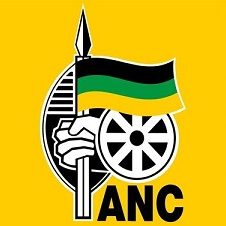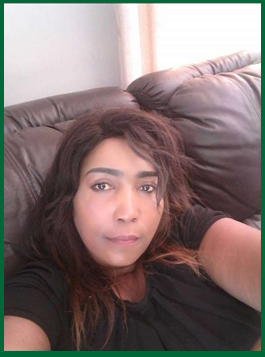Hailing from Escourt, Comrade Melody was soon singing revolutionary songs
“History teaches us that in the late 1980s, apartheid put more restrictive and draconian measures in place to prevent or counter the civil uprising, which was gaining momentum across the country. This was when as the greatest threat to white minority rule because all the people across the country came together and fought the apartheid regime – regardless of their race, gender, creed, and tribe”.
“Supporters of the then disbanded United Democratic Front (UDF), African National Congress (ANC), and Congress of South African Trade Union (COSATU) including churches, learners and student organizations emerged as one wider movement to resist apartheid and its inhumane laws”.
“As a young woman from Escourt, Kwa-Zulu Natal, I was moved by the widespread resistance across the country, which also affected my area. Escort was a predominantly white and Asian town and we lived in the township, Wembezi. Most of our brothers, sisters, mothers, and fathers were working at white and Asian factories and farms. People in the township joined the widespread resistance against PW Botha’s regime. In 1989, I joined the civil resistance marches where I recall that the masses were singing the revolutionary song, “Oliver Tambo theta no Botha a khululi uMande- la”.
She was inspired by the resilience of the activists
“As a young person back then, particularly a teenager, I did not exactly understand the real struggle, but became more interested in politics – even though the Mandela name was popular among our communities. Those who were older than me would narrate the stories about African history, about the struggle and the treatment workers were facing at various workplaces. I was personally touched by what our communities stood for, resisted against, and believed in equality, justice, and freedom. I was inspired by the resilience and resistance of our people against the notorious system of minority rule, including the pursuit for a democratic country.”
Comrade Melody joined the ANC in 1992
“After 1994, the political milieu ran more smoothly and it was safe for everyone to join, promote, and participate in one’s beloved organisation. I managed to join ANC in January 1992; because of the love I have for it, and as it was difficult to join the ANC or YL in some areas in KZN, as some areas were no-go areas and were infested with political killings. I moved to Gauteng in December 1992, after the death of my grandmother and I continued being a civil activist and member of ANC”.
She learnt about unity, democracy, and being non-sexist and non-racist “I stand for simple justice, equal opportunities, and human rights. The indispensable elements in a democratic society and a well worth fighting for” Helen Suzman
“I have learnt so much in area of politics and civil organisations that some of the values and lessons are still very relevant and good for our future”.
“Unity is extremely important for any group, company, and organisation because it plays a huge role in ensuring that there is a success and the future remains protected. During the struggle, particularly in the 1980s, people of all tribes, creeds, and races came together and fought the segregation regime, and that according to me was the greatest gesture of unity that ensured the death of the erstwhile oppressive regime of the minority”.
Unity in diversity
“Today, unity is of paramount importance, because it creates a space where people can work together in their diversity. In the ANC today, unity means that all leaders, members, veterans, and cadres should work together to ensure that the organisation will not reach extinction – by ensuring they avoid institutionalized factions, being self-serving, greed, and the promotion of hatred among comrades. This means that the coming together of all comrades to make sure that the question of addressing the national question in the National Democratic Revolution is answered – “African people in general, blacks in particular” and all policies of the organisation will be implemented including the realization of the Freedom Charter”.
Selflessness and democracy are vital
“Selflessness is that one needs to serve people and the organisation with the utmost dedication, determination, and commitment. This is significant to all members and leaders of the ANC because it means that all elected ANC leaders are structurally obliged to serve the organisation with distinction, without causing harm to the organisation and its membership, and this also goes for cadres who are deployed in government or state institutions”.
“Democracy is an important component for the success of any organisation. The ANC is a renowned, democratic organisation, which invites all people of different races, tribes, creeds, and genders to join. I hold the view that the ANC should continue to practice freedom in all its gatherings and matters because this has made it what it is today. This means that listening to various raised voices from the youth to the elders – both in government and in the organisation”.
“To be non-sexist and non-racial – as is stipulated in the ANC Constitution Rule 3, 3.1. “The ANC is a non-sexist and non-racial and democratic liberation movement” – I would like to make a submission that these are key values to me, as a member of ANC and as a South African citizen, because through them, our organisation is able to move forward. This makes the ANC to be led by people of both genders and races at all levels – without discrimination and we are able to defeat the demon of racism and patriarchy”.
Her generational mission was empowering the youth
“Give me just one generation of youth, and I will transform the whole world” – Vladimir Lenin “This quote from Vladimir Lenin is complemented by what the longest-serving ANC President OR Tambo said, “A country that does not invest in its youth or young people does not deserve future.”
“As a young person of ANCYL and ANC, I subscribed to a YL program of “Economic Freedom in Our Lifetime” and the concept is still relevant today. The mission was to incorporate many young people in various sectors of the economy – both in private and public”.
“The broad participation of young people in the mainstream economy would benefit the country a lot and I strongly believe that we today would not be facing the high rate of youth unemployment. The economic structure now depicts that the wealth of the country in The hands of the elite, in particular the white minority, who benefitted hugely from the economic atrocities of apartheid. There is a big need for economic freedom in this South Africa and the war for radical economic change should be intensified by young people”.
The key roles she has played within the MDM include:
“The overwhelming majority of women accept patriarchy unquestioningly and protect it, working out the resultant frustrations not against men but against themselves in their competition for men as sons, lovers, and husbands. So, men dominate women through the agency of women themselves”
- “After my activism in my home province of KZN, I settled in Gauteng and continued my activism, where many people are here mainly for economic purposes. I saw people struggling to find places to stay and some were forced to stay in dangerous areas.
- I became an active member of the South African National Civic Organisation (SANCO) in 1998 and in 2000 became the leader of it in our section.
- I was co-opted into branch leadership in 2003.
- I was appointed Deputy Secretary of the branch in 2005.
- In 2009, 2010, and 2012, I was the Deputy Secretary of the branch.
- I was elected Secretary of the branch in 2017, to date”.
The youth must seize all opportunities and become leaders
“Today, the environment is very healthy and good for young South Africa and there are vast opportunities in many sectors. The youth will need to take these opportunities and use them to their advantage”.
“I want to see young people participating in the mainstream economy. They should go to universities and TVET colleges to arm themselves with the necessary skills. Young people should become ward councilors, mayors, and ministers”.

